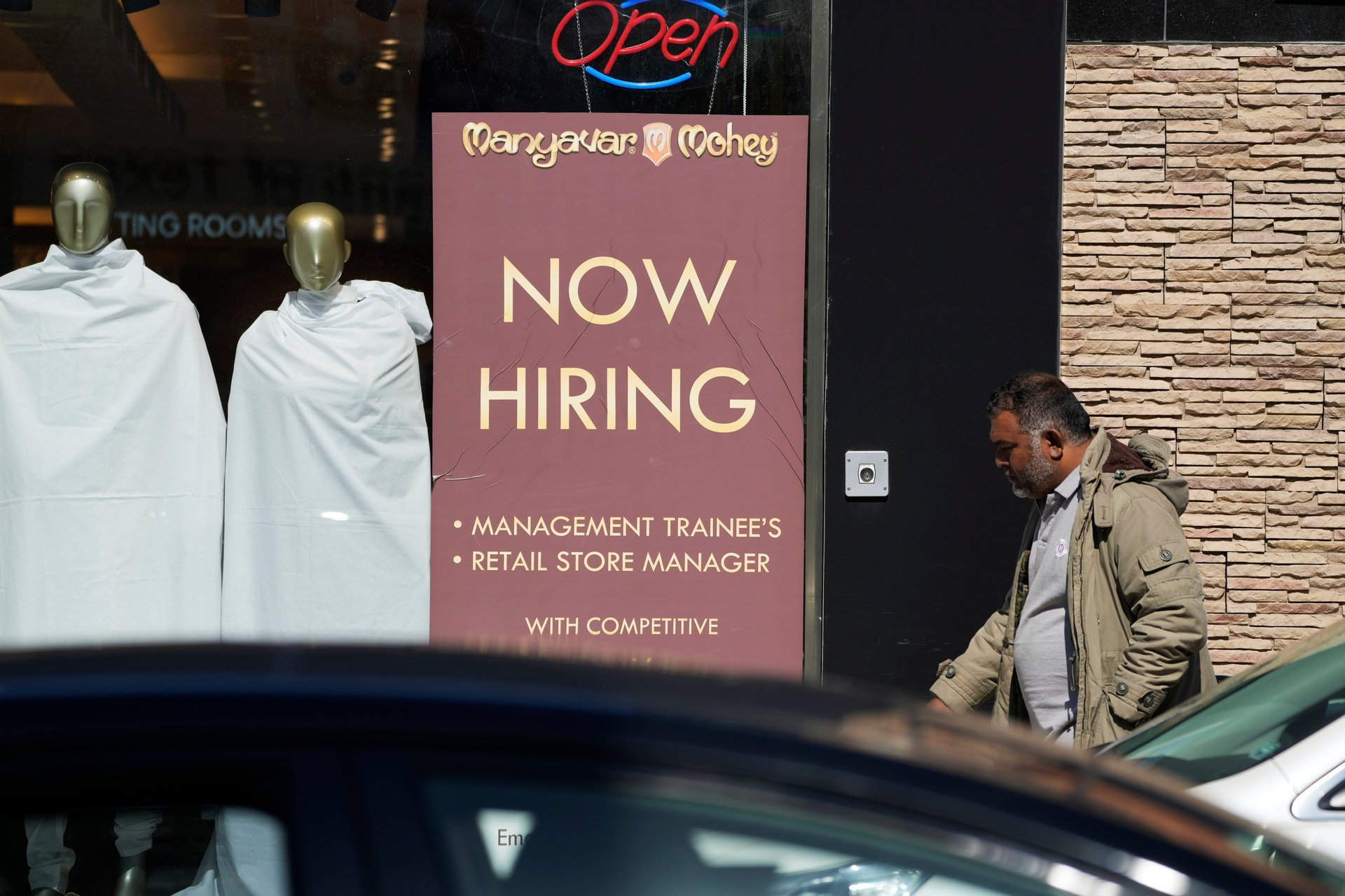Number of Americans filing for jobless benefits remains low in a thriving labor market
The number of Americans applying for jobless benefits last week inched up but largely stayed at historically low levels as the labor market continues to thrive despite elevated interest rates

The number of Americans applying for jobless benefits last week inched up but largely stayed at historically low levels as the labor market continues to thrive despite elevated interest rates.
Suggested Reading
The Labor Department reported Thursday that filings for unemployment claims for the week ending March 9 ticked down by 1,000 to 209,000 from the previous week's 208,000.
Related Content
The four-week average of claims, which evens out some of the weekly volatility, came in at 208,000, a decrease of 500 from the previous week.
In total, 1.81 million Americans were collecting jobless benefits during the week that ended March 2, an increase of 17,000 from the previous week. Last week's number, which had been the most since November, was revised down by 112,000.
Weekly unemployment claims are considered a proxy for the number of U.S. layoffs in a given week. They have remained at historically low levels since the pandemic purge of millions of jobs in the spring of 2020.
The Federal Reserve raised its benchmark borrowing rate 11 times beginning in March of 2022 in an effort to bring down the four-decade high inflation that took hold after the economy roared back from the COVID-19 recession of 2020. Part of the Fed’s goal was to loosen the labor market and cool wage growth, which it believes contributed to persistently high inflation.
Many economists thought the rapid rate hikes could potentially tip the country into recession, but that hasn’t happened. Jobs have remained plentiful and the economy has held up better than expected thanks to strong consumer spending.
In February, U.S. employers added a surprising 275,000 jobs, again showcasing the U.S. economy’s resilience in the face of high interest rates.
At the same time, the unemployment rate ticked up two-tenths of a point in February to 3.9%. Though that was the highest rate in two years, it is still low by historic standards. And it marked the 25th straight month in which joblessness has remained below 4% — the longest such streak since the 1960s.
The unemployment rate is 3.9%, and has been below 4% for 25 straight months, the longest such streak since the 1960s.
Though layoffs remain at low levels, there has been an uptick in job cuts recently, mostly across technology and media. Google parent company Alphabet, eBay, TikTok, Snap, and Cisco Systems and the Los Angeles Times have all recently announced layoffs.
Outside of tech and media, UPS, Macy’s and Levi’s also recently cut jobs.